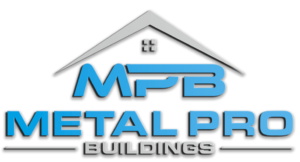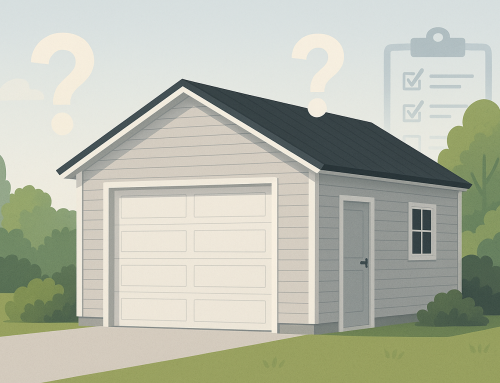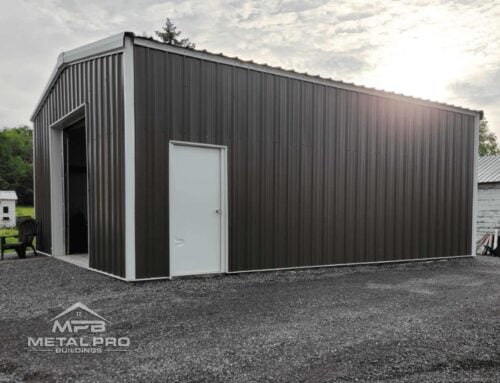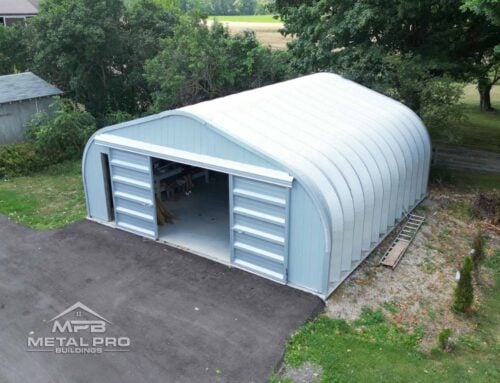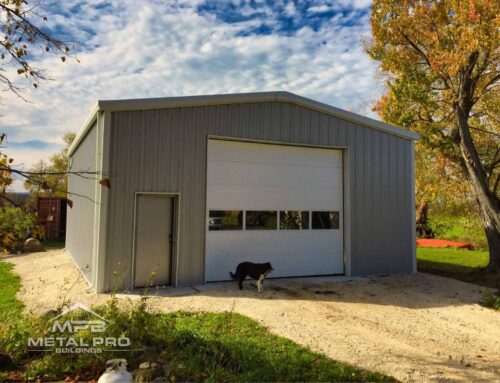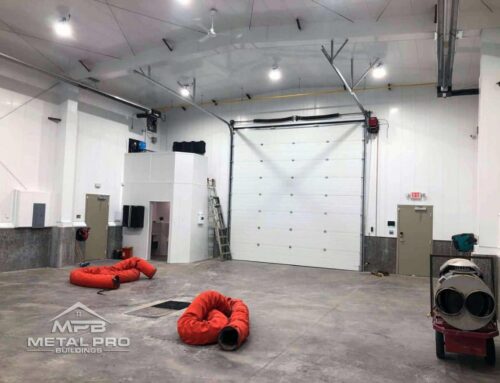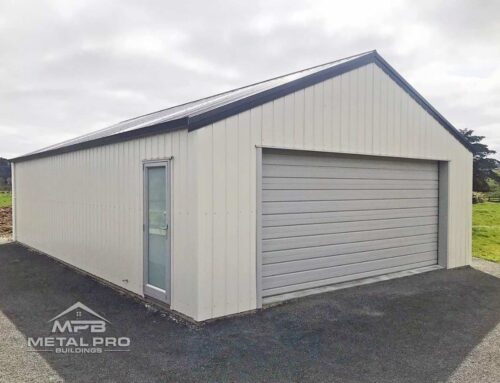Picture this: you pull into your driveway and realize your garage isn’t just a place to park, it’s part of your home’s value. The big question is, do you go with a quick, affordable prefab garage or invest in a fully custom build?
Homeowners often struggle here. A prefab sounds budget-friendly but may feel limiting. A custom garage looks perfect but comes with higher costs and longer timelines. Choosing wrong could waste money or lower resale value.
This article cuts through the confusion. We’ll compare prefab and custom garages on cost, speed, design, and return on investment so you can decide which is the smarter move for your property.
Cost Considerations
When evaluating prefab versus custom-built garages in Canada, cost is a top concern. Let’s break it down clearly:
Upfront Costs
- Prefab Garages
In Canada, steel prefab garages including materials, foundation, and installation typically cost between $24 and $43 per square foot. If you prefer a kit to install yourself, prices range from $5,000 to $30,000, depending on size and features.
For a deeper breakdown of pricing and factors that influence it, check out this guide on how much a prefabricated garage costs in Canada .
- Custom-Built Garages
The average cost to build a garage be it single- or double-car falls between $28,000 and $52,000 across Canada.
In Ottawa, garage additions, especially attached ones can range from $60,000 to $120,000, and high-end designs may exceed $150,000.
In Alberta (e.g., Edmonton or Calgary), custom builds commonly cost between $18,000 and $45,000 for modest garages.
Summary: Prefab garages typically cost less upfront, ranging from around $5,000 to $30,000 or $24–43/sq ft, while custom builds can range from $28,000 to over $100,000, depending on region, design, and scope.
Long-Term Maintenance & Durability
- Prefab Pros & Cons
Steel prefab garages resist rot, pests, and fire, making them low-maintenance in Canada’s climate.
However, basic prefabs may need extra spending for insulation or finish upgrades to handle long winters effectively.
- Custom Build Strengths
Custom-built structures often use better materials, thicker walls, and stronger foundations. These factors can lead to longer lifespan and potential value additions though initial costs are higher.
In short, prefab offers low upkeep but may need enhancements; custom builds are tougher but can cost more to maintain over time.
Financing & Payment Options
- Prefab Kits
Many prefab providers include clear, turnkey pricing. Some even offer staged payments like before delivery, after assembly, etc.
- Custom Builds
Financing a custom project typically requires either a construction loan or contractor-specific financing, due to layers of costs (design, permits, labor, materials).
- Flexible Financing Available
Some Canadian garage builders partner with finance platforms like Financeit to offer 0% interest or deferred payment options.
For steel structures, permanent loans in Canada can cover the cost of land, materials, and construction in one package.
Bottom Line: Prefab often means simpler, clearer payments. Custom builds may need specialized financing but flexible options exist for both.
Summary Table
| Factor | Prefab Garage | Custom-Built Garage |
|---|---|---|
| Upfront Cost | $5,000–$30,000 or $24–$43/sq ft | $28,000–$52,000; high-end $60,000+ |
| Durability & Maintenance | Resistant but may need upgrade for value | Strong, long-lasting may carry higher upkeep |
| Financing Options | Prepriced kits, easier staged payments | Construction loans, design fees, flexible plans |
Installation Timeline
Timing matters. Depending on your goals, speed or long-term planning, knowing how long each option takes can make a big difference.
Prefab Garages
Prefab garages are known for being fast. Many come as ready-to-assemble kits or pre-built units. Simple prefab builds can go up in just a few days, sometimes even half a day for very simple designs.
Many prefabricated structures mimic prefab homes, which can reach a weather-tight phase very quickly sometimes in hours. This suggests that, once prepped, a prefab garage can be installed and fully functional in a matter of days to weeks.
Custom-Built Garages
Custom builds take more time, mainly due to permit work and on-site construction.
Permits: Getting building permits in Canada typically takes 2 to 4 weeks, though zoning variations can extend this.
Construction timeline:
- Foundation work: Laying prep and pouring concrete takes about 2–3 days, plus another 2–3 weeks for curing.
- Structure: Framing, siding, roofing, windows, and doors usually take 3–5 days.
- Electrical: Installing wiring, outlets, and lighting adds 1–2 days.
- Finishing touches: This includes gutters, interior steps, epoxy floors, and site cleanup typically 1–4 days.
Altogether, from signing the contract to completion, a standard custom garage project typically spans 6–8 weeks, assuming no major setbacks.
Larger, fully insulated custom builds may take 6–8 weeks or more, depending on complexity, materials, permits, and weather.
When Speed vs. Planning Matters
When fast installation matters if you need storage or workspace quickly, prefab is your best bet. Its controlled factory build environment means less weather delay and fewer surprises.
When long-term planning fits better custom builds give you full control over design, materials, and finishes. You can match the style and structure of your home exactly. But be ready for longer timelines involving permits, site prep, weather delays, and coordination with contractors.
Summary Comparison
| Factor | Prefab Garage Timeline | Custom-Built Garage Timeline |
|---|---|---|
| Permitting | Minimal | 2–4 weeks (or more if zoning applies) |
| Construction Speed | A few days to quick buildup | 6–8 weeks (foundation, build, finishing) |
| Installation Finish | Very fast—quick use | Slower—but custom details possible |
| Weather Delay Risk | Low | Moderate to high depending on season |
Customization & Design Flexibility
When it comes to making your garage a perfect fit for your home, your needs, and your style customization matters. Here’s how prefab and custom-built garages stack up in Canada.
Prefab Garages: Convenient, but Limited
Prefab garages offer solid design options, but there are limitations. Many come in standard styles and sizes, such as single- or double-car models with predictable layouts. While some suppliers offer add-ons like windows, insulation, or paint, these upgrades are often restricted to preset options. This means your choices may feel constrained if you need something truly unique.
That said, prefab metal kits do allow for some customization. You can often choose your garage’s shape, size, and exterior finishes. Want extra doors, insulation, or a custom end wall? Many kit providers in Canada support these tweaks, just be prepared to work within predefined packages.
Custom-Built Garages: Unlimited Possibilities
If personalization is your priority, custom build wins hands down. You control everything from dimensions and layout to materials and architectural details. High ceilings, custom doors, built-in storage, lofts, workshops whatever you can imagine, you can build. The result is a garage that truly complements your home and lifestyle.
With a custom build, it’s easy to match your existing house’s aesthetics using similar sidings, rooflines, even matching brick or trim. This seamless integration boosts curb appeal and property value in ways prefab simply cannot.
Quick Comparison
| Feature | Prefab Garage | Custom-Built Garage |
|---|---|---|
| Design Options | Limited, preset sizes and layouts | Full control over layout, size, and interior features |
| Exterior Materials | Basic finishes, some customization available | Any material—wood, brick, stone, or siding matching home |
| Special Add-ons | Optional but limited (windows, loft kits, etc.) | Built to your exact specifications (HVAC, office, garage door styles) |
| Integration with Home | May look like an add-on | Designed to blend naturally with house design |
Durability & Quality
A garage is more than walls and a roof. It needs to endure harsh weather, last years without constant repairs, and stay solid through Canadian winters and hot summers.
Prefab Garages: Durable, But Varies by Material and Build
Prefab garages, especially metal or steel kits, offer excellent resistance to rot, pests, and mold making them a low-maintenance option in a moist, freeze-thaw Canadian climate. Many steel buildings offer structural warranties and are designed for long-term resilience.
However, quality can vary. While prefabs are built efficiently, their base versions may lack proper insulation or heavy-duty finishes. Upgrades are often available, but they come with added cost. That said, many prefab packages include energy-efficient options or structural resilience built-in.
Custom-Built Garages: Built to Last and Tailored for Strength
Custom-built garages often feature thick framing, poured concrete foundations, and architectural materials crafted for durability. They’re built to precise on-site standards meant to withstand the elements and wear over decades. Stick-built (custom) garages can easily last 30–50 years or more with proper maintenance.
Because of the high-quality craftsmanship and materials, custom builds generally require less frequent repairs over time, making them a worthwhile long-term investment.
At a Glance: Durability & Maintenance Comparison
| Factor | Prefab Garage | Custom-Built Garage |
|---|---|---|
| Material Strength | Steel resists mold, rot, pests; warranties common | Heavy-duty materials (wood, brick, composite) used |
| Longevity | Durable, but beginner-level kits may need upgrades | Designed for decades of use with high structural integrity |
| Maintenance | Low maintenance, though upgrades might be needed | Less frequent repairs required over lifespan |
| Environmental Fit | Result depends on kit quality and site prep | Built to site-specific codes, climate, foundation |
Why It Matters for You
If you’re looking for something quick, sturdy, and cost-effective, a steel prefab garage gives you strong protection with low upkeep but it may need topping up for insulation or finishes. Want something that blends beautifully with your home and stands solid for decades? A custom garage offers the craftsmanship, tailored materials, and durability to match and potentially raise your resale value.
Impact on Property Value
Let’s dive into how prefab and custom-built garages influence your home’s resale potential especially in the Canadian market. Here’s what expert sources and real regional data reveal:
Prefab Garage: Cost-Effective Value Boost
Prefab garage kits can significantly improve your home’s functionality and appeal. They add usable space for parking, storage, or a workshop which buyers often value. This added utility can make your property more desirable.
Though exact Canadian figures are sparse, studies suggest a regular-size garage can increase home value by about 13–15% gains that even steel kits can hold strong when paired with smart design and placement.
In Edmonton, for instance, building a new detached garage has been reported to boost a property’s value by 10–15%. If your home is worth $500 000, that’s an added $50 000 to $75 000 in value.
Custom Garage: Seamless Design, Stronger ROI
Custom garages can deliver more than just space; they offer unified design and premium materials, greatly enhancing curb appeal and long-term value.
Even in U.S. markets, the 2023 Cost vs. Value Report shows that garage or shop additions can recoup up to 64% of their cost at resale. While this is U.S.-based, the trend holds: quality custom builds are seen as long-term investments that raise property perception.
Heritage Structures, a construction expert, emphasizes that custom garages offer tailored features, architectural harmony, and robust materials factors that make them “a valuable asset” for future buyers.
Quick Comparison
| Garage Type | Key Value Factors | Approximate ROI / Value Boost |
|---|---|---|
| Prefab Kit | Quick space, lower cost, storage appeal | Adds ~13–15% value; ~10–15% in Edmonton |
| Custom Build | Design match, premium materials, architectural fit | Recoups ~64% of cost; strong curb appeal |
Final Takeaway
Prefab garages:
- Offer fast, affordable upgrades that still boost home value.
- Add storage and curb appeal without the heavy investment.
- Especially valuable if you just need practical space with good resale impact.
Custom-built garages:
- May cost more upfront but deliver better design, durability, and architectural harmony.
- Often appreciated as intentional, quality enhancements that attract buyers and offer solid long-term return.
Common Objections Addressed
Even smart homeowners hesitate at certain points. Let’s tackle the most frequent objections head-on and show you why both options still shine when you know the facts.
1. “Prefab looks cheap”
This perception is common but doesn’t always hold up. Modern prefab garage kits in Canada now offer quality design and finishes. In Metal Pro™ Buildings our kits are durable, attractive, and designed to meet national building codes. Features such as insulation, sliding doors, and trims can be added to elevate the look and feel. These options help prefabs fit residential architecture without compromising style.
2. “Custom takes too long”
It’s true that custom garages require planning, permits, and on-site construction but smart project management can streamline this.
- Prefab kits often arrive with parts pre-cut and ready to assemble in a weekend. Installation is quick, efficient, and avoids major delays.
- For custom builds, early permit submission (if local zoning allows) and working with experienced contractors can significantly reduce the typical 6–8 week timeline. Planning ahead keeps things moving.
3. “I’m worried about resale impact”
Prefab garages may not blend with architectural aesthetics, while custom builds raise concerns about cost versus return. But here’s what data and experts say:
- In Edmonton, even a detached prefab garage can boost home value by 10–15% by adding storage and appealing utility.
- Custom builds, on the other hand, deliver exceptional ROI when designed to match the home’s style and quality standards. Buyers often view them as intentional upgrades worth paying for.
4. “I’ll outgrow prefab quickly”
Prefab kits may use standard sizes, but many providers offer scalable options and add-ons. For example, arch-style buildings can be extended, and accessories like windows or ventilation are often available. This flexibility makes prefab a viable, scalable solution.
Summary: Objection & Solution Table
| Objection | Reality & Resolution |
|---|---|
| Prefab looks cheap | Modern steels, finishes, and accessories make them stylish and code-compliant. |
| Custom takes too long | Prefabs install in days; planning can streamline custom timelines. |
| Resale impact unclear | Prefabs add ~10–15% home value; custom builds offer long-term aesthetic and market appeal. |
| Prefab won’t scale | Many kits are extendable; upgrades available. |
| Longevity concerns (e.g., floors) | Solid foundations and upgrades (like proper slabs) solve these issues. |
Decision Framework
When the choice isn’t obvious, a simple, actionable framework helps. Here’s a step-by-step guide to make your decision clearer and smarter.
1. Define Your Priorities
Start by asking:
- Are budget and speed your top concerns?
- Do you value design flexibility, long-term quality, or return on investment?
2. Evaluate Key Factors
Use this checklist to guide your decision. These are the top factors highlighted by industry leaders:
- Budget: Prefab is often 20–30% cheaper thanks to factory efficiency.
- Timeline: Prefab kits can be assembled in days, while custom builds take weeks to months.
- Features & Custom Needs: Prefab offers preset upgrades; custom allows full tailoring from materials to insulation to layout.
- Local Climate & Permitting: Custom builds can handle site-specific challenges; prefab requires good site prep and easier permitting.
- Lot Shape & Size: For tight or irregular lots, custom ensures a better fit. Prefab works best on regular, easily accessible sites.
- Resale Value Focus: Custom garages often deliver higher ROI and blend seamlessly with the home’s architecture.
3. Compare Options Side by Side
| Priority | Prefab Garage | Custom-Built Garage |
|---|---|---|
| Cost | Lower upfront cost: ~$5K–25K kit or $24–43/sq ft installed | Higher upfront: ~$28K–52K typical; $18K–45K in Alberta; $60K–120K+ in Ottawa |
| Timeline | Days to weeks (kits are quick to assemble) | Weeks to months (permit, foundation, construction) |
| Design Flexibility | Limited, but some upgrades available | Full control over layout, materials, and aesthetics |
| Site Conditions | Best for accessible, flat sites | Highly adaptable to different lot conditions |
| Resale & Value Enhancement | Adds functional space appealing to buyers | Aesthetic integration and high-end features can boost value |
Conclusion & Next Steps
Choosing between a prefab and a custom-built garage in Canada isn’t just about cost, it’s about your priorities. If speed, budget, and simplicity matter most, prefab is the smarter play. If long-term durability, design harmony, and maximizing resale value are your goals, a custom-built garage is worth the investment.
Both options have clear advantages. The key is aligning your choice with your lifestyle, property needs, and financial plan.
Your next step: explore the right garage for your property with Metal Pro. Whether you need a fast, affordable prefab solution or a tailored build for long-term value, our steel garages deliver durability, style, and ROI.
